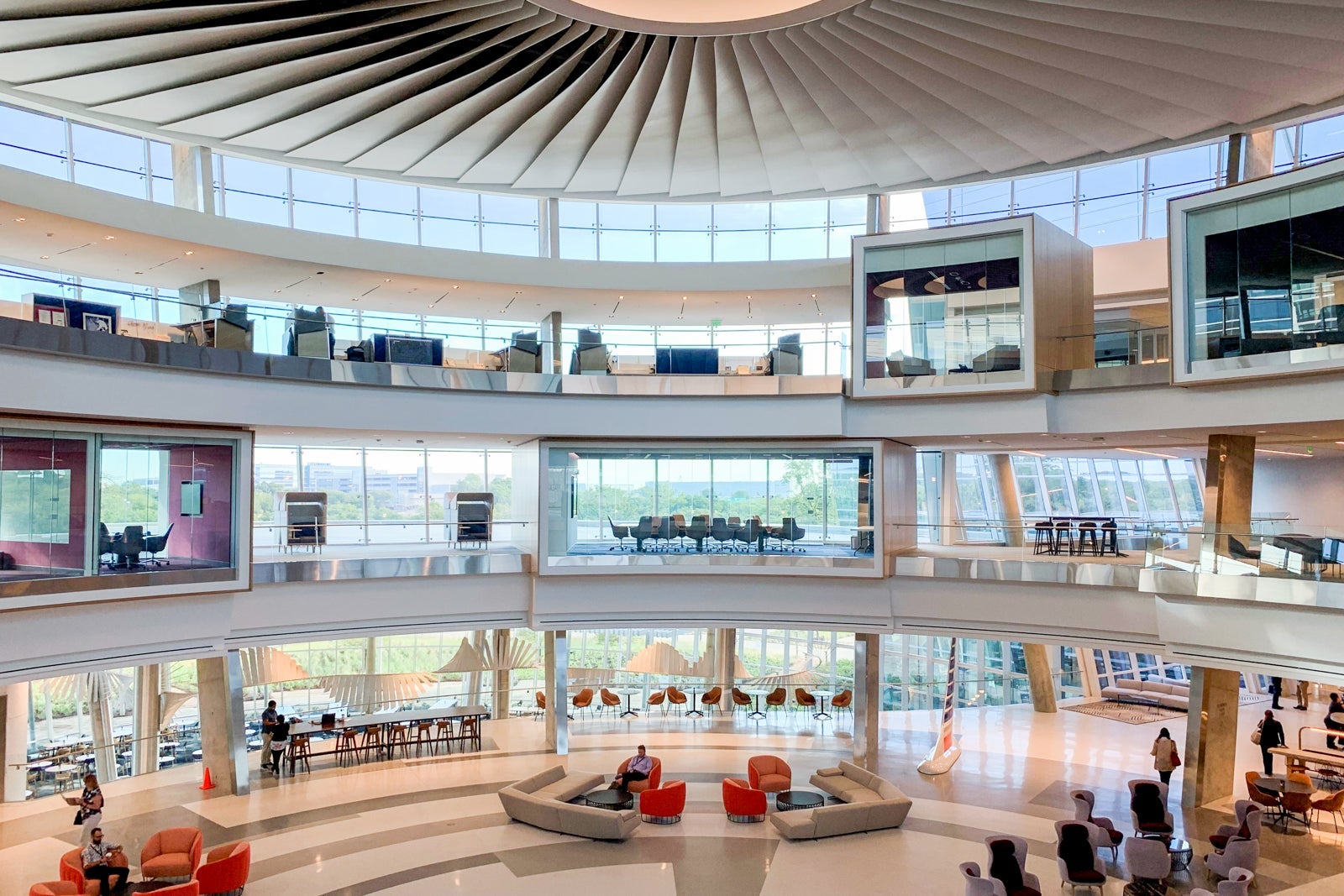Why American Airlines’ new headquarters gives me hope for its future
There's no denying it: American Airlines had a rough year in 2019. Operational woes, the Boeing 737 MAX grounding and a contentious labor dispute with mechanics were just a few of the headaches for the airline's management. These -- among other things -- led to a general feeling that things weren't great at AA.
But I recently met with a group of American Airlines executives at the company's headquarters in Fort Worth, Texas. I left feeling optimistic about the direction of the carrier after getting an inside look at the Robert L. Crandall Campus, American's newly built corporate home.
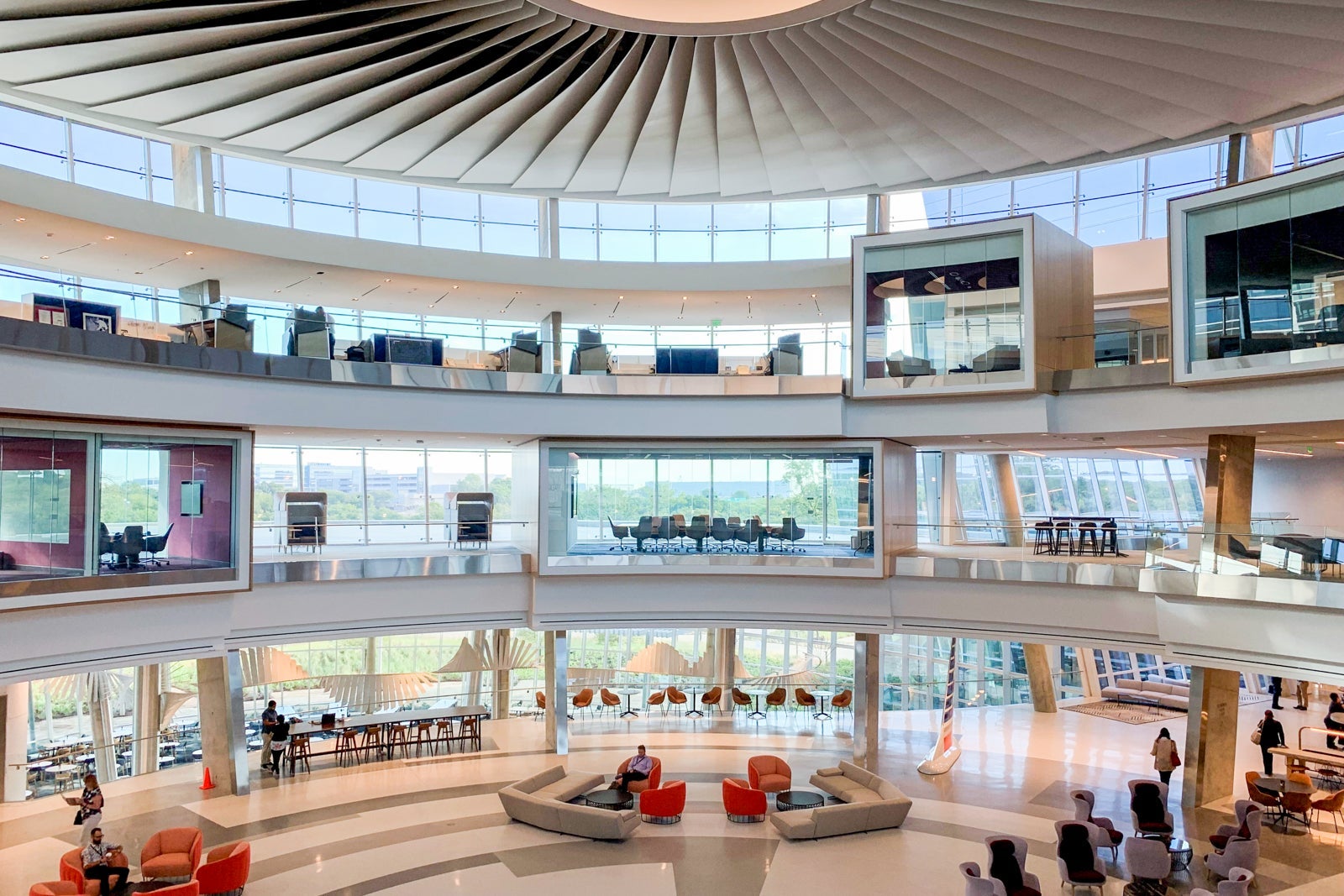
The new headquarters is a sprawling, 300-acre campus with eight buildings that will all carry the name Skyview -- very on brand for an airline, wouldn't you say? And, yes, you can planespot from the office (though I would say AA should provide telescopes so employees can get closer to the action).
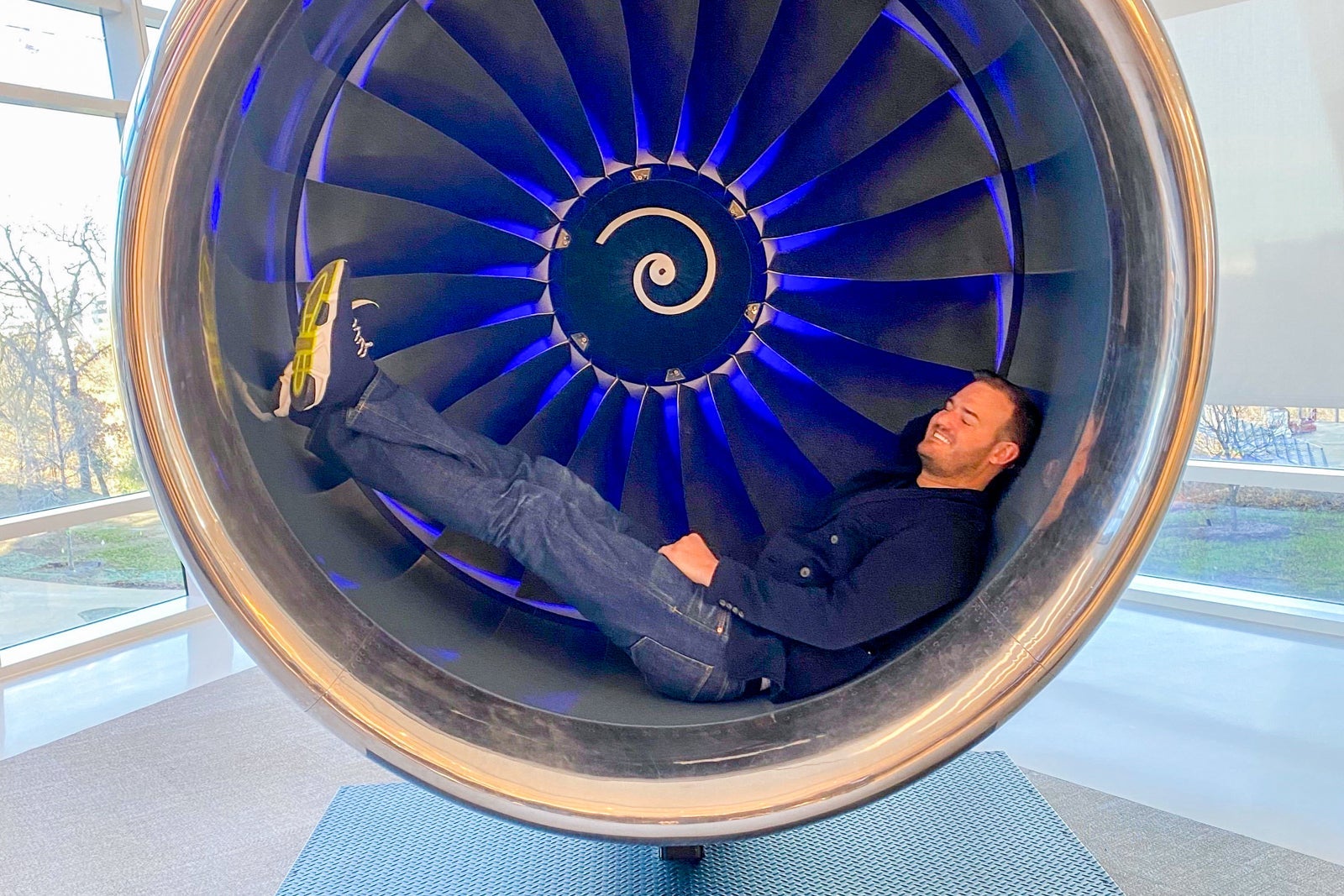
This is not any ordinary, drab office for a corporate behemoth. It feels like a small college campus where almost 12,000 employees make it a hive of aviation activity. It's not just a place to work, either. The airline is going to be converting 21 acres of existing concrete surfaces into landscaped spaces. The campus will have 8.3 miles of trails and enough trees to absorb over 165,000 pounds of carbon dioxide each year, making it a place where workers can focus on their own wellness and take outdoor walks during the workday. There are even company-provided bikes that can take one across campus at a faster clip.
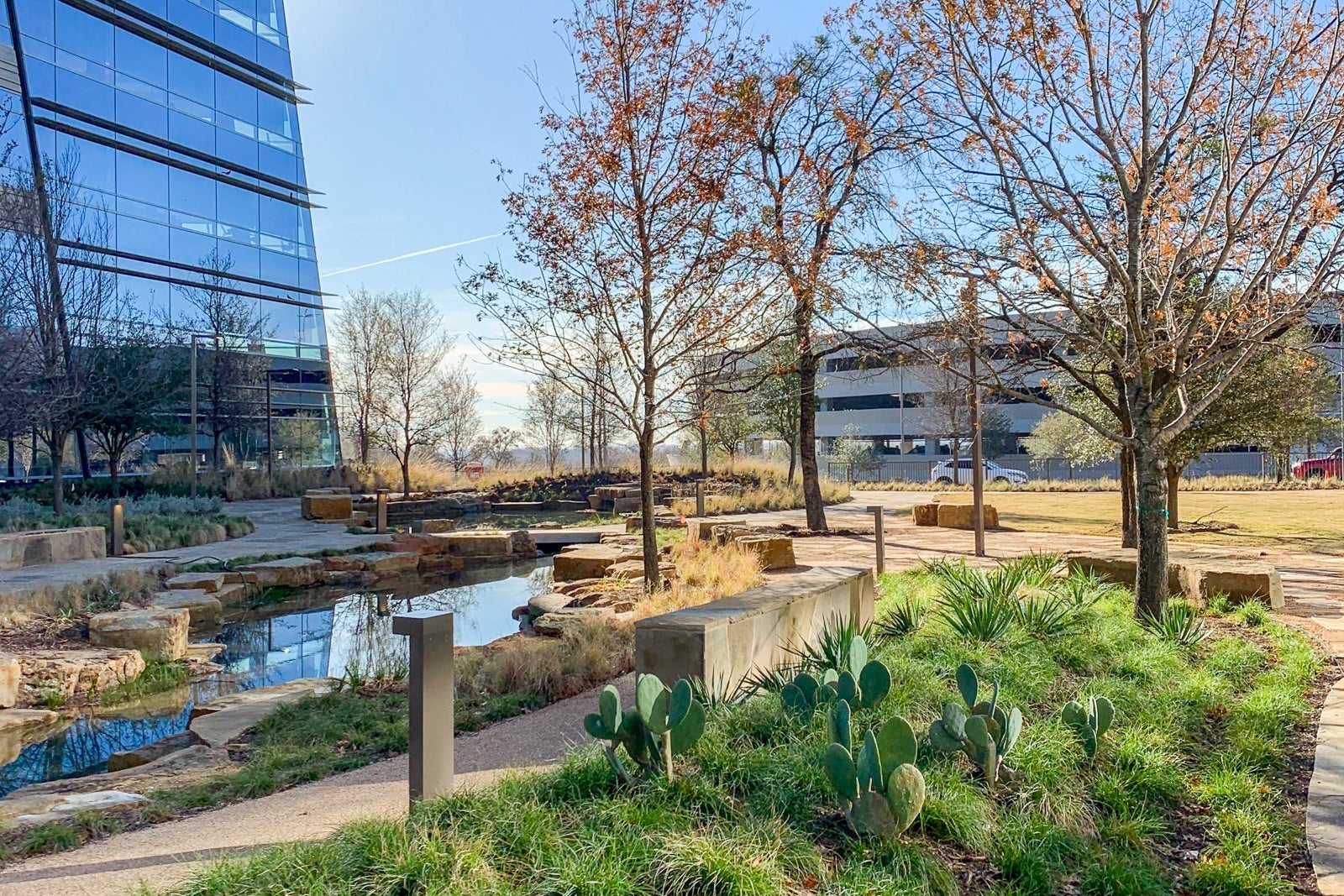
Inside, it's easy to see that American had built the facility with an open and collaborative work environment in mind. All employees enter through one entrance, and you immediately can see people smiling, laughing and collaborating. Even the CEO, Doug Parker -- and other executives -- sit right out in the open.
The emphasis on the office as a center of aviation is clear: There are aviation-themed photos everywhere, and plenty of more subtle nods to the sky, travel and the history of the commercial aviation industry.
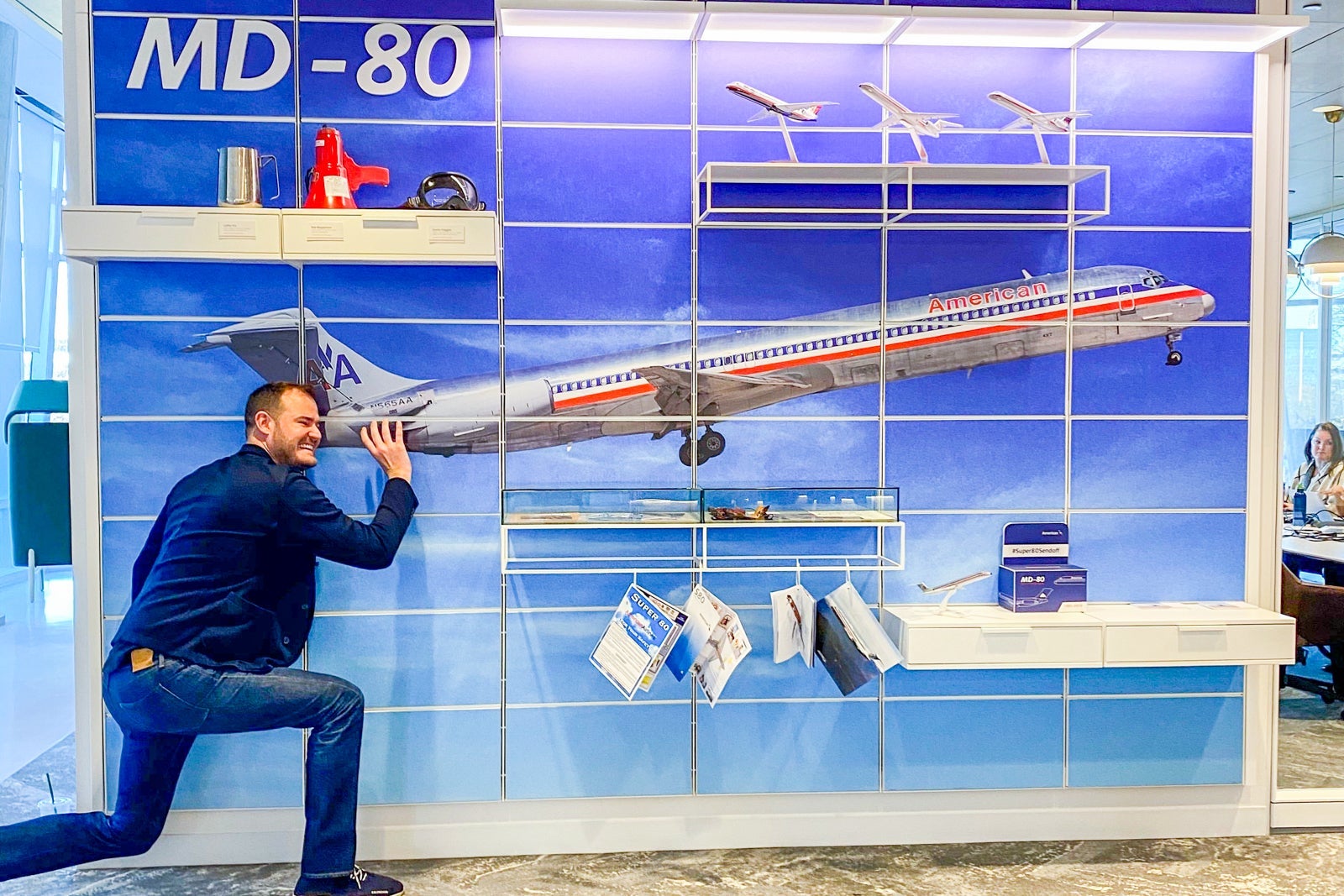
One of the most prominent pieces of art on campus is a sculpture made completely out of airplane safety cards!
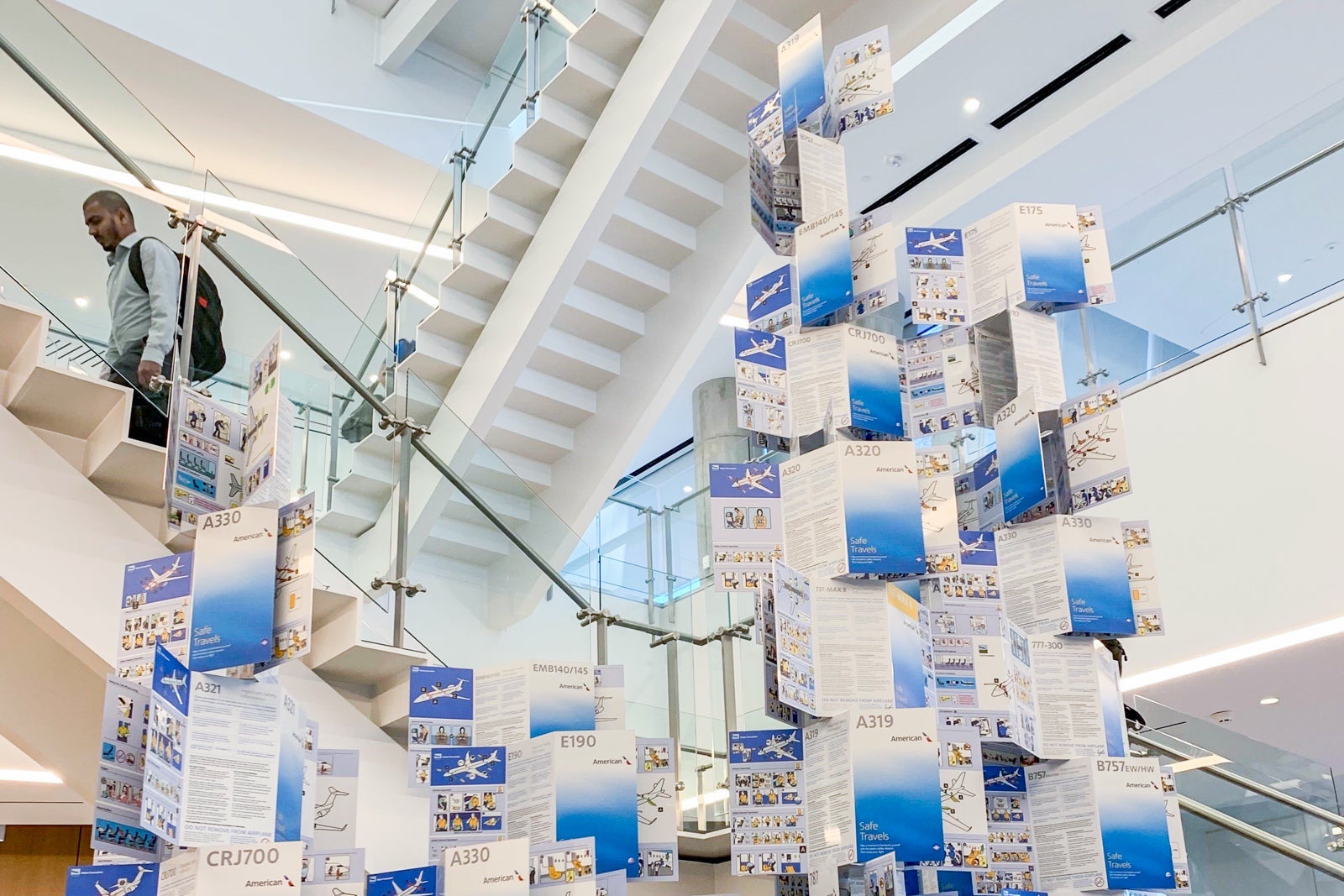
The airline's old headquarters was stuffy and felt very last-generation. Management was sequestered away from the rest of the team. Now, there's been a complete reversal with the new space. The furniture, design and openness of the space make it feel more like Google than an almost-90-year-old airline.
What American's revamped headquarters tells me is that the airline is serious about its mission and how it sees itself as a company. The recent struggles are very real problems, and the management needs to address them quickly and effectively. But this warm and welcoming building exudes good energy.

It really seems that the airline has its act together on the ground, both with this gorgeous and well-designed headquarters and with the carrier's Flagship lounges (especially Flagship First Dining), which, frankly, are amazing. I love how Flagship First Dining is kept as a very exclusive experience for the carrier's first-class flyers.
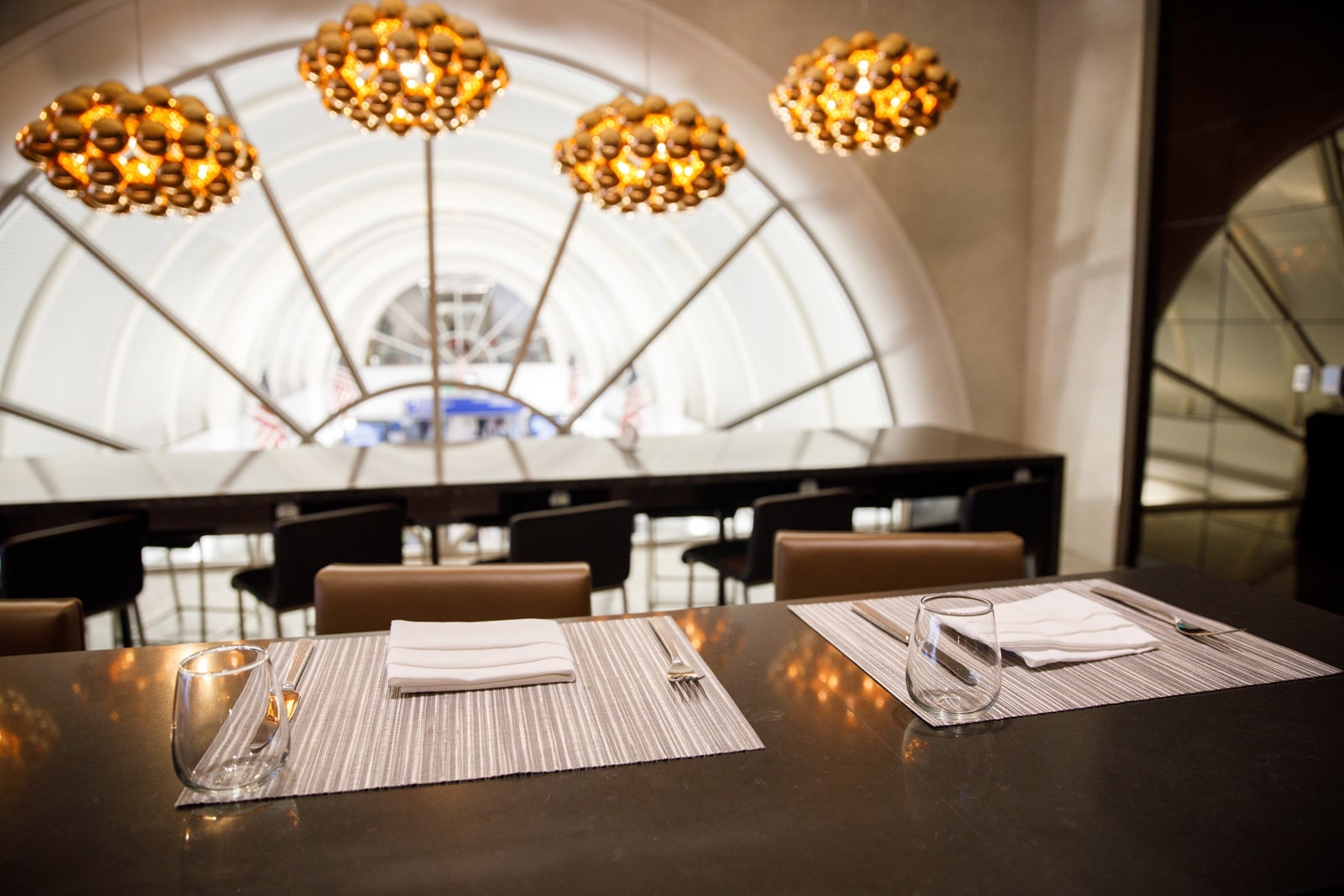
And, the food and ambience are truly top-notch and can compete with some of the top ground products around. I'm a big fan of the Flagship Burger, which would be an impressive dish in a top restaurant, never mind an airport.

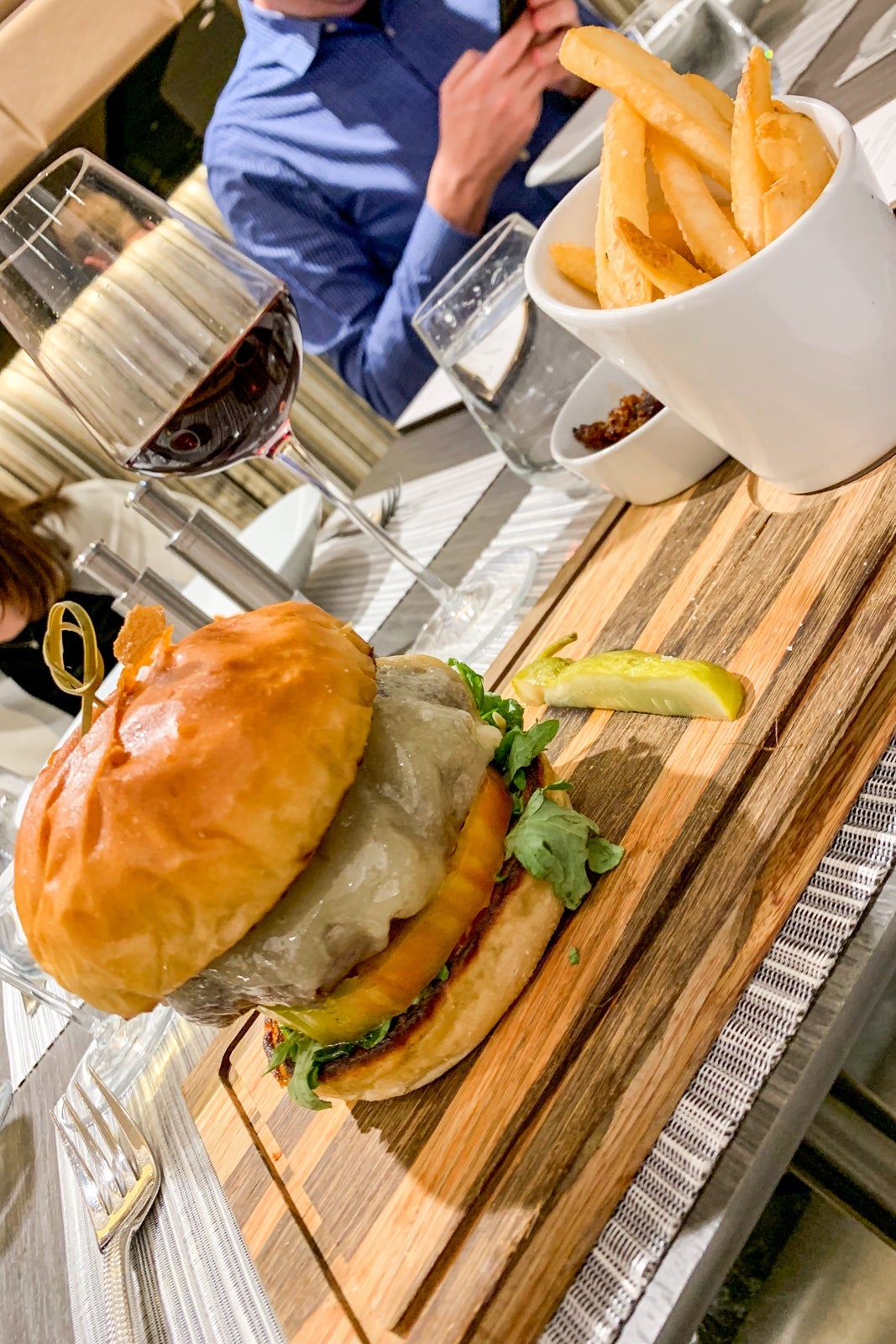
Access to American's most exclusive preflight experience is restricted to first-class passengers on the aircraft that offer a Flagship First product -- the Airbus A321T and Boeing 777-300ER, though some ConciergeKey members have been receiving passes to enjoy Flagship First Dining even while not flying in first class. You can find American's Flagship First Dining at New York-JFK, Los Angeles (LAX), Dallas-Fort Worth (DFW) and Miami (MIA).
But unfortunately for American recently, things fizzle out a little bit once you board the plane. The product is inconsistent on domestic narrow-body flights. On its internationally configured wide-bodies, the business-class product doesn't have anything to set it apart from the competition, and the first-class product is only on a handful of aircraft and even on those isn't that much different from business.
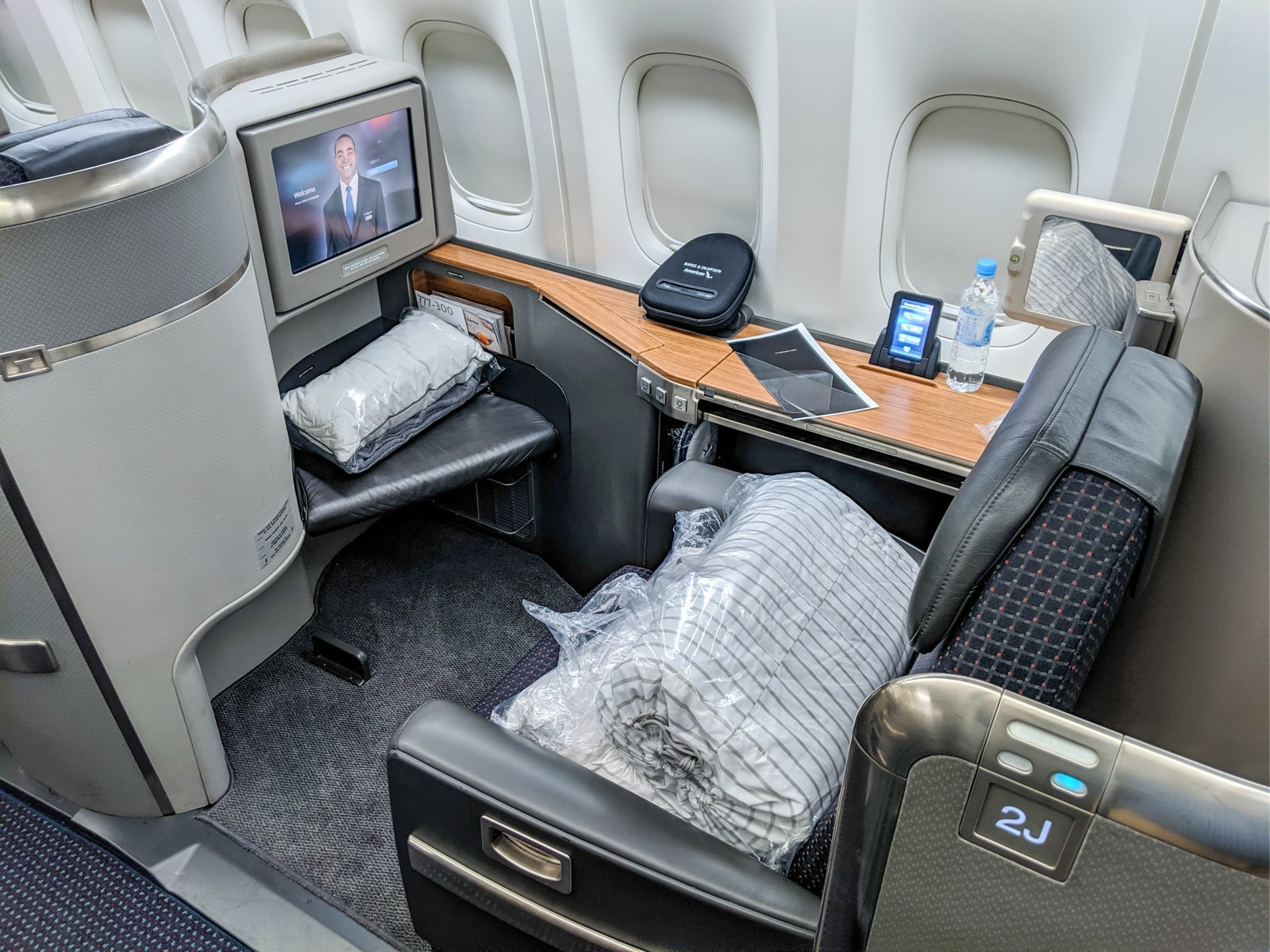
But I think there's hope.
I really do believe that if American took some of what it learned with the renovation of its headquarters and translated it to its inflight product, it could win back some of the flyers who have taken their loyalty (and dollars) elsewhere recently. If the airline embraced the passion for aviation, travel, collaborative spirit and forward-thinking design that it showed me at its new headquarters and bring that on board its aircraft, then the company could regain some lost ground from its competitors, both domestic and abroad.
TPG featured card
at Capital One's secure site
Terms & restrictions apply. See rates & fees.
| 5X miles | Earn 5X miles on hotels, vacation rentals and rental cars booked through Capital One Travel |
| 2X miles | Earn unlimited 2X miles on every purchase, every day |
Pros
- Stellar welcome offer of 75,000 miles after spending $4,000 on purchases in the first three months from account opening. Plus, a $250 Capital One Travel credit to use in your first cardholder year upon account opening.
- You'll earn 2 miles per dollar on every purchase, which means you won't have to worry about memorizing bonus categories
- Rewards are versatile and can be redeemed for a statement credit or transferred to Capital One’s transfer partners
Cons
- Highest bonus-earning categories only on travel booked via Capital One Travel
- LIMITED-TIME OFFER: Enjoy $250 to use on Capital One Travel in your first cardholder year, plus earn 75,000 bonus miles once you spend $4,000 on purchases within the first 3 months from account opening - that’s equal to $1,000 in travel
- Earn unlimited 2X miles on every purchase, every day
- Earn 5X miles on hotels, vacation rentals and rental cars booked through Capital One Travel
- Miles won't expire for the life of the account and there's no limit to how many you can earn
- Receive up to a $120 credit for Global Entry or TSA PreCheck®
- Use your miles to get reimbursed for any travel purchase—or redeem by booking a trip through Capital One Travel
- Enjoy a $50 experience credit and other premium benefits with every hotel and vacation rental booked from the Lifestyle Collection
- Transfer your miles to your choice of 15+ travel loyalty programs
- Top rated mobile app

